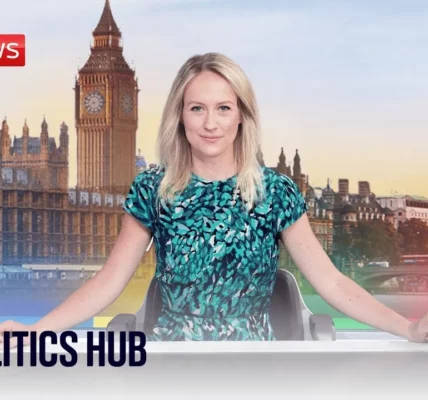Understanding the Economic Dynamics Amid Sanctions on Russia

This article delves into the complexities of the Russian economy amidst international sanctions, exploring the effectiveness of corporate compliance and the ongoing impact on global markets.
Introduction
The ongoing conflict between Russia and Ukraine has led to unprecedented international sanctions aimed at crippling the Russian economy. However, despite these efforts, evidence suggests that Russia has managed to sustain its economic operations and continue its military endeavors. This article will examine the nuances of the sanctions imposed, the responses from corporations like Jaguar Land Rover, and the broader implications for the global economy.
The Current State of the Russian Economy
Two and a half years into the war, Russia’s economy appears resilient, defying predictions of a severe economic crisis. High oil prices have been a significant factor in this recovery, allowing Russia to maintain a flow of revenue despite sanctions.
Impact of High Oil Prices
Oil has become the cornerstone of Russia’s economic stability. The surge in oil prices following the invasion has allowed the Russian government to continue funding its military operations. The following points illustrate the significance of oil in this context:
- Russia remains one of the world’s largest oil exporters.
- Increased demand for oil amidst geopolitical tensions has driven prices higher.
- The revenue generated from oil sales has bolstered the Russian budget, enabling continued military expenditures.
Challenges Faced by Corporations Under Sanctions
Companies like Jaguar Land Rover have publicly stated their commitment to comply with sanctions. However, the reality is more complex, with parallel import systems emerging as a significant loophole.
Parallel Imports and Grey Markets
Parallel imports refer to goods imported through unauthorized channels, often circumventing official sanctions. This practice has been on the rise, complicating the enforcement of sanctions. Consider these factors:
- Difficulty in tracking and stopping vehicles once they enter Russia.
- Emergence of a black economy that thrives on grey market imports.
- Reports indicate significant volumes of UK car exports still reaching Russia through third countries like Georgia and Kazakhstan.
The Role of Inflation in Russia’s Economy
Despite maintaining some economic vitality, Russia is grappling with high inflation rates, which have reached approximately 9%. The Russian central bank has responded by hiking interest rates to 19% in an attempt to stabilize the economy.
Factors Contributing to Inflation
The following factors have been identified as contributing to the inflationary pressures within Russia:
- Increased military spending amidst the ongoing war.
- Supply chain disruptions as a result of sanctions.
- Rising costs of imported goods due to parallel imports and market fluctuations.
International Response and Future Outlook
The international community continues to monitor the situation closely, with countries like the US and the UK considering secondary sanctions on foreign banks that facilitate trade with sanctioned entities in Russia.
Potential for Economic Slowdown
Analysts predict that the Russian economy may face a significant slowdown in the coming year due to the following reasons:
- Increased scrutiny on foreign banks and financial transactions.
- Potential reduction in oil prices due to global market adjustments.
- Growing pressure from the international community to enforce sanctions more stringently.
Conclusion
In summary, while Russia has managed to navigate the immediate impacts of sanctions through high oil revenue and parallel imports, significant challenges remain. The interplay between sanctions, corporate compliance, and economic resilience will continue to shape the future of the Russian economy. As the situation evolves, it is crucial for policymakers and corporations to consider the implications of their actions in this complex geopolitical landscape. For further insights, we encourage readers to explore related articles on the economic sanctions and their global implications.
“`




